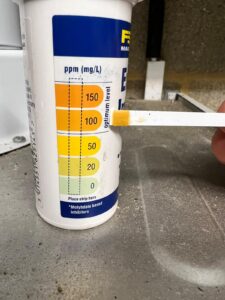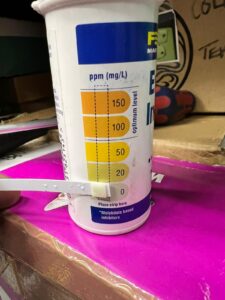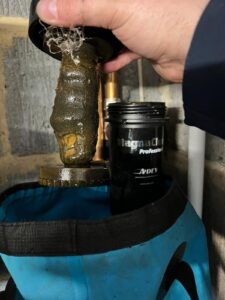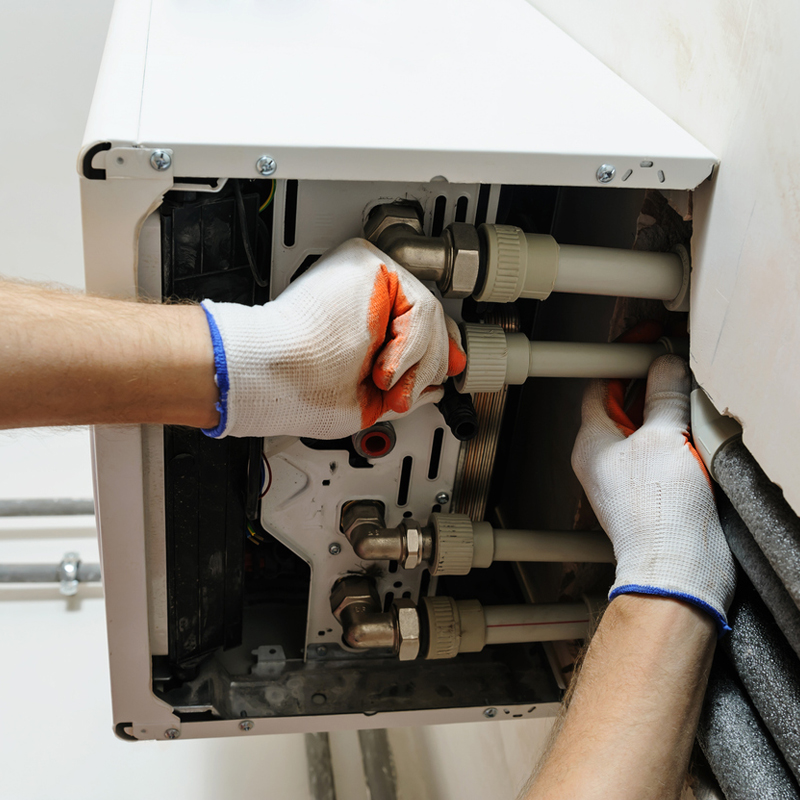Chemicals and filters are a key part of boiler servicing and maintenance. They help to keep both domestic and industrial boilers working properly, prevent wear and tear and overall extend the heating system’s life span. Below we have gone into more details about both chemicals and filters, explaining in simple terms their functions and how they assist our engineers in keeping your boilers running at full speed:
Without specific chemicals, all different types of boilers wouldn’t be able to run effectively. There are a multitude of different chemical manufacturers out there, but the particular manufacturer we use is Adey. Heating systems need different chemicals for differing reasons; here’s what is used and why:
MC1 Protector – As it says in the name, an MC1 Protector is used to protect a boiler from the build up of sludge and debris. More specifically, MC1 Protector stops magnetite and other deposits forming, ensuring the heating system works as effectively as it should for longer periods of time.
MC2 Silencer – Again, the clue is in the name! Although this chemical does not completely silence your boiler, it will help to restore smoother function and reduce noise.
MC3 Cleaner – You guessed it, this one helps to clean! When there is a significant build up of sludge and debris, the MC3 Cleaner breaks down magnetite and other unwanted sludge in as little as an hour.
MC4 Leak Sealer – An effective way to deal with smaller leaks is using Mc4 Leak Sealer. This chemical protects and seals from the inside of the heating system pipework, aiding the engineer when they are unable to find any leaks when a boiler keeps losing pressure.
Magnetite – More commonly referred to as just ‘sludge’, magnetite is the official name of the black substance comprised of dissolved and rusted metal that builds up from pipework. When ferrous components react with air and water, magnetite is formed. An example of this is when the water reacts with the steel inside radiators.
Our engineers can take a water sample and use a colour scale on a special test strip to determine how much inhibitor is in the system in question. This advises if any more inhibitor needs to be added. We can increase energy efficiency by making sure that a heating system has minimal sludge inside.


Above are examples of the test strips we use to determine the amount of inhibitor in a heating system. The first picture shows an optimal amount of inhibitor detected, whereas the second shows a very low level – here we needed to add more inhibitor.
For a number of years now, we have fit a system filter to all the new boilers that we install. We will also recommend this filter to any customer who does not currently have one fitted.
Fitted to the return pipes just before the boiler, a filter will stop any debris and sludge entering the boiler itself. A filter contains a very strong magnet that attracts and sticks magnetite to it, again stopping the boiler from getting a build up of sludge.

Annual cleaning for these filters is important to reduce the chance of too much magnetite building up on the magnet and again going into the boiler. During this service, our engineers may also be required to replace the filter’s seals if they are degrading to prevent a possible leak.
If for any reason the heating system has too much sludge inside, we may need to carry out a cleanse – this can be done in two ways:
Pre Powerflush/Magnacleanse – If your heating system requires either a Powerflush or Magnacleanse, it is common practice for us to visit the site prior to the work being carried out, so we can add MC3 Cleaner into the system first. Here it is best that the boiler and heating system is turned on so that the chemicals can make their way around the system and hopefully dislodge and dissolve any sludge.
Powerflush – A Powerflush machine pushes high water pressure through a heating system. An engineer would turn off all but one radiator in the heating system during this process, and gently bang the a rubber hammer against the radiator to dislodge and built up sludge while the Powerflush machine continues to push water through. Then, the engineer will work his way around the property to carry out the same process on each radiator until the water runs clean. The downside to this process is that it can cause leaks in the system if it is older due to the high pressure of the machine; so it may not always be possible to use this Powerflush method.
Magnacleanse machine – An alternative to the Powerflush machine is what’s known as the Magnacleanse. This uses two large filters without the need for high pressured water. It uses the domestic pump either in the boiler or on the system to move water around. The same process will be carried out in turning off all but one radiator. This can sometimes be a better cleansing option due to not using potentially leak-causing high pressure water.
There you have it – some more in depth information about the chemicals and filters you can expect to see our engineers using on both domestic and commercial boilers and heating systems. If you suspect your boiler isn’t running as efficiently as it should be, or if it’s making more noise than you’d expect, get in contact with us to book an engineer visit. It’s likely that we’ll use some of these chemicals and filters to get it running more efficiently!
